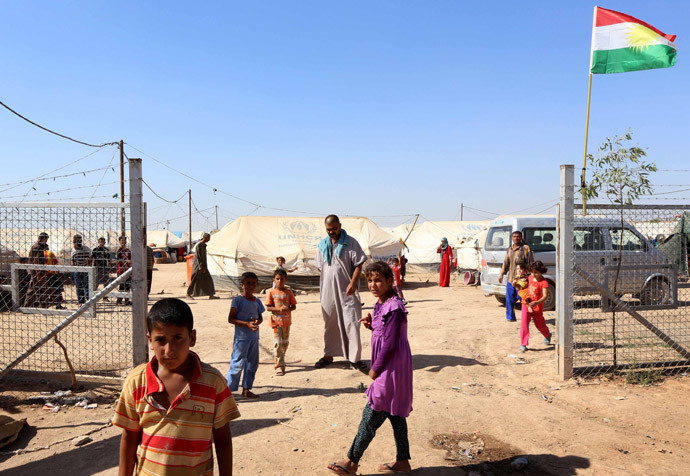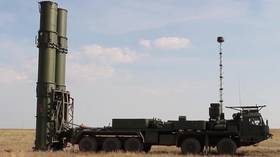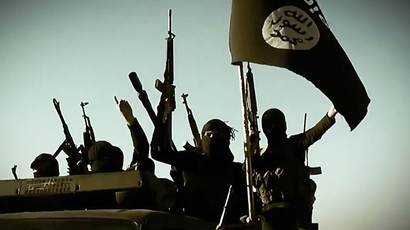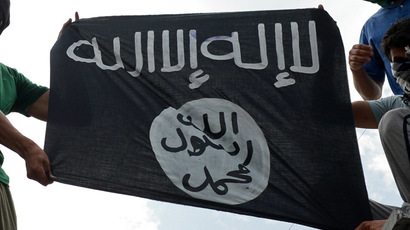1.8 million fleeing ISIS in deadly, life-threatening situation - UN
A total of 1.8 million people are in a “deadly, life-threatening situation” according to a UN report on Iraq. Their lives are in danger daily, while the influx of refugees is putting strain on locals – and schools have been delayed from opening.
The displaced people are being forced to take shelter wherever they can – even under bridges, and there are often not even blankets for them.
“I couldn’t bring anything with me,” refugee Sabria Suleiman told RT. “The only thing I have left is the children’s ID cards.”
Sabria’s and Ayham Suleiman fled with their family when radical Islamic State militants were attacking their settlement. They didn’t have time to take their belongings with them.
“We don’t really know what will happen. When we arrived here, we just followed other families to the school. We get no help from the authorities – we don’t even have blankets to keep us warm,” Marwan Murad Sabria, another member of the family, told RT.
Schools mostly stink, with garbage piling up, and there are few blankets and little food, RT’s Paula Slier, who is on the scene, said.
In its statement Wednesday, the UN stressed how grave the refugees’ plight is.

“The people who are here came here to seek refuge,” Deputy UN Humanitarian Coordinator in Iraq Kevin Kennedy told Reuters on Wednesday. “They are very traumatized, having seen things they did not want to see."
Out of 1.8 million internally displaced people, over 850,000 have arrived in refugee centers from Anbar, Mosul and Sinjar in the last few months, fleeing the deadly conflict. In August alone, the number of IDPs was around 650,000 people.
Due to the growing numbers of refugees and the fact that they are forced to seek shelter inside schools, the school year had to be delayed for months. In the province, there are about 1,500 schools, and all of them are packed with refugees, bringing the entire educational system to a halt.
According to UN estimates, about 390,000 people are currently sheltering in local schools.
“I’m sad they’re staying in the school, because in this way, I can’t keep up with my studies,” 9-year-old pupil Marian Sindy told RT.
Her sister Nalin was to go to school for the first time, and said she wanted to “study in a big school,” so that she “can be a nurse.”
The worst part is perhaps that there are no prospects for the families stuck in their misery far from home.
Local educational authorities underline the plight the system is in.
“It’s already a crisis. We have children who’ve finished middle school and are waiting to go to high school, and children who’ve finished high school, and are waiting to go to college,” Omar Cindy, a father and school head teacher, told RT.
“The bigger problem is that we don’t know when the situation is over. That’s in the hands of the superpowers,” he said.














